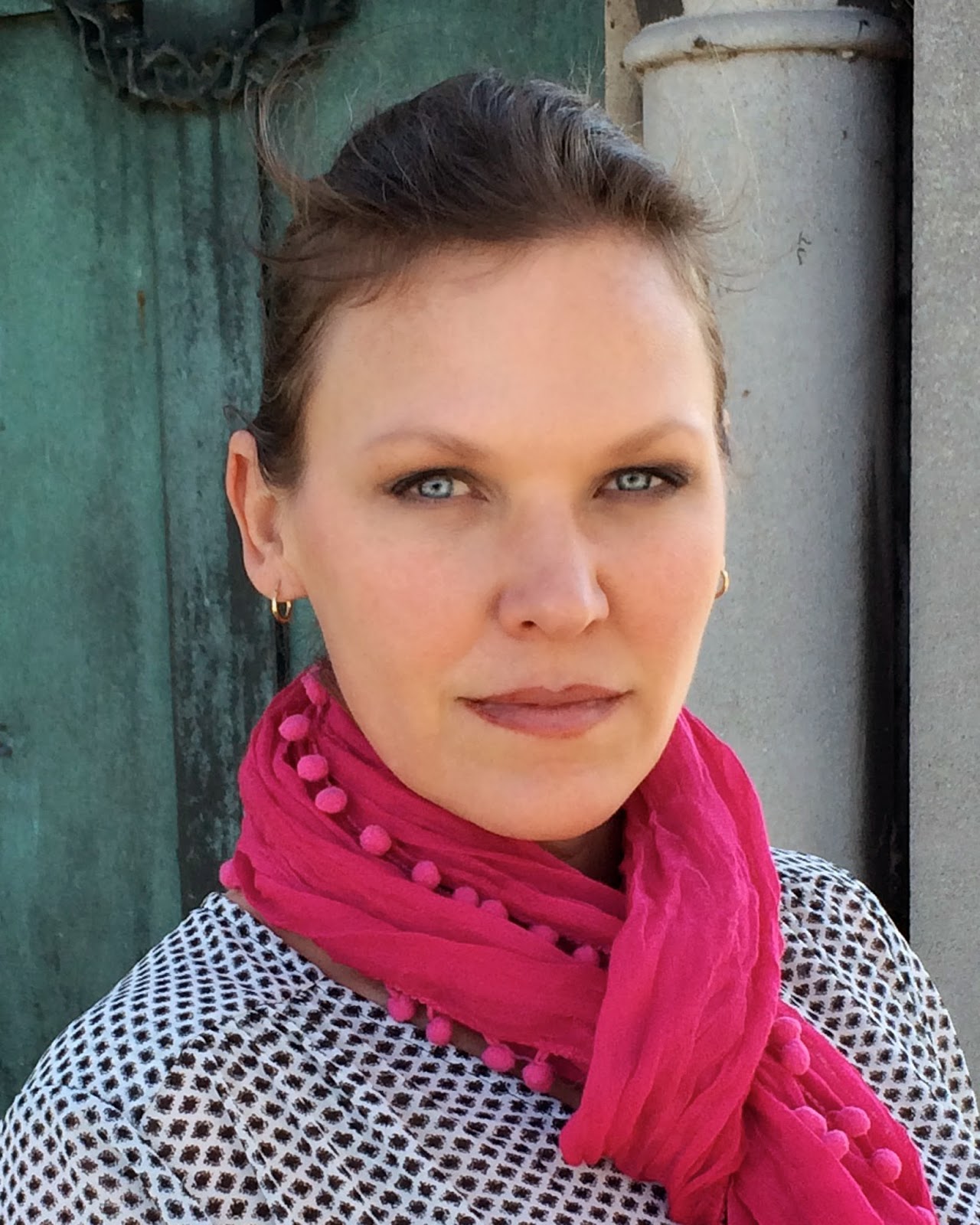Welcome to another installment of TNBBC's Where Writers Write!
Where Writers Write is a series that features authors as they showcase their writing spaces using short form essay, photos, and/or video. As a lover of books and all of the hard work that goes into creating them, I thought it would be fun to see where the authors roll up their sleeves and make the magic happen.
 |
| photo credit Sara Huffman |
This is Chris Cander.
Chris is a novelist, children’s book author, freelance writer, and
teacher for Houston-based Writers in the Schools. Her most recent novel, Whisper
Hollow (Other Press) published on 3/17, and her novel 11 Stories,
published by a small press in Houston, was included in Kirkus’s best indie
general fiction of 2013.
Where Chris Cander Writes
Each of us begins with a sense of place. Place is an
essential and inexorable part of our understanding of the world, and later,
ourselves. Place is where our families of origin forged their lives. It may be
where we were born, grew up, experienced our most mundane or our most profound
moments. Even when we wander, we remain deeply rooted by the memories of those
physical spaces we have occupied. The very common question, “Where are you
from?” confirms the inherent link between place and identity, suggesting, even,
that we are not just from a place, we are that place. For these reasons, I am
reverent about the settings I choose for my fiction—and for myself.
Virginia Woolf said, “A woman must have…a room of her own if
she is to write fiction.” I feel very fortunate to have one. My home office is
a refuge and sanctuary, a place where I keep and create stories. It’s also a
magic portal to the other, imaginary places where my characters live. Just
entering the room is like stepping onto a storied path.
Take a look around. Here is the desk I bought for $100 when
I was a college freshman. There are my retired taekwondo belts (the current one
hangs on the door for easy access.) There are the paintings I bought from a street
artist; when I need a yes-or-no answer I have only to consult the wall. Here is
my cowhide rug, because my home is Texas. There is the chest my grandfather
made for me out of West Virginia cedar when I was born. It’s filled with my
childhood treasures, and bears the overflow of books that don’t fit on my
shelves.
All around, these bookshelves hold not just my favorite
books, but also photos and drawings by friends, little mementos and souvenirs
and items that inspire or are inspired by my fiction. Here is the shelf just to
the left of my desk that is a little altar to my novel Whisper Hollow.
There’s a photograph by Don Davis of a cemetery in
Centralia, Pennsylvania that inspired the pried-open border around St.
Michael’s cemetery in my novel. There is a jar with bits of coal that I picked
up along the side of a railroad in southern West Virginia when I was doing
research. There is the angry, wind-up nun that reminded me of Myrthen, the
angry, would-be nun whose obsession fuels much of the story. There is a print
of the photograph “Sasha and Ruby” by the German photographer Loretta Lux that I
found long after imagining the characters that eerily reminded me of Myrthen
and her twin, Ruth. (Equally eerie is that my daughter’s name is Sasha.) Next
to it is a funny German cork that my mother bought in Kaiserslautern about
fifty years ago. Out of view is a candle with the name “Cabin Fever” that
burned as I wrote about Alta’s cabin in the Hollow. Finally, there is a bear
sculpted from coal and a stained-glass ornament in the shape of West Virginia,
where my mother grew up. These things connect the two places: that of my
mother’s home state, and the fictional setting it inspired.
In her book On Writing,
Eudora Welty talks about the importance of place. “Place being brought to life
in the round before the reader’s eye is the readiest and gentlest and most
honest and natural way this can be brought about, I think; every instinct
advises it. The moment the place in which the novel happens is accepted as
true, through it will begin to glow, in a kind of recognizable glory, the
feeling and thought that inhabited the novel in the author’s head and animated
the whole of his work.”
Maybe it’s superstition, or simply comfort, but I like to
think that by working in a sacred place, surrounded by books and art and
amulets, I’m better able to realize the places created by imagination, and
animate them for the reader.





No comments:
Post a Comment